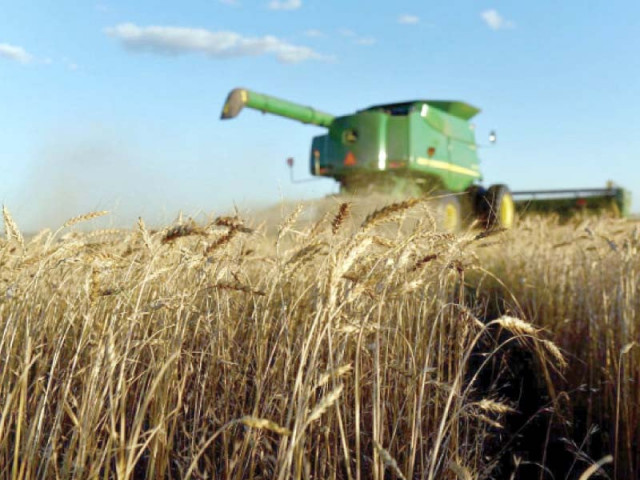Govt urged to revamp PARC
Agri sector officials say performance of research departments is deteriorating

Agriculture sector stakeholders have requested the government to restructure the Pakistan Agricultural Research Council (PARC) and its research centre National Agricultural Research Centre (NARC) citing deterioration in the performance of both departments.
“PARC has failed to contribute to the agriculture sector in a comprehensive way from the past couple of years,” FPCCI Standing Committee on Agriculture former chief Ahmad Jawad told The Express Tribune.
Terming the agriculture sector the backbone of Pakistan’s economy, he said this segment was not treated like an industry. “Farmers are following the old conventional way of farming, which has resulted in low yields over the past several years,” he said.
He added that the farming community possessed huge potential to enhance yields of major crops.
Nearly 85% of PARC’s budget is spent on employee related expenses and only a meagre amount is utilised for research while new crop varieties are not properly marketed towards the farming community.
He added that no new varieties were being created by the research council and farmers received crop seeds from the market due to which cotton output was on a decline.
It is the responsibility of PARC to create new varieties for cotton and conduct awareness sessions in areas falling on the cotton belt, he said. Unfortunately, PARC’s research is confined only to the premises of Islamabad.
Stating figures, he said that the government had fixed cotton production target at 10.5 million bales for the ongoing fiscal year.
Talking about kinnow, he said seedless variety was created a few years ago, however, it still has not been planted on a mass level in areas of Sargodha district because farmers are unaware of the benefits and yield output of the new variant.
Pakistan’s kinnow industry contributes $250 million to the national exchequer on a yearly basis and the improved variety is direly needed for exports, said Jawad
“The incumbent government is keen to control the lofty edible oil import bill and in this regard, it is planning to focus on increasing the production of soybean and olives in the country,” he said.
Farmers have managed to enhance yields of these crops, however, no mechanism is in place to extract oil from them.
He recommended PARC to ink joint ventures with international agencies to develop small cost-effective extraction units for farmers so that they receive due financial benefit from the yield.
Sindh Chamber of Agriculture President Miran Mohammed Shah lamented that no research was being done on agriculture inputs.
He held the view that thorough research was needed in fields of seed development, factors leading to shortage in agricultural yield of major crops and ecological and environmental changes.
“PARC has failed to perform in all the areas of research,” he said. “Rigorous research needs to be conducted in the agriculture sector and PARC should be restructured.”
Sindh Abadgar Board (SAB) Senior Vice President Mahmood Nawaz Shah said that research and development remains weak across all provinces of Pakistan despite the presence of major departments, directorates and numerous research stations.
Agriculture Republic Co-founder Aamer Hayat Bhandara said that the biggest challenge faced by PARC and NARC is shortage of human resource.
At the moment, the two departments are working at less than 50% of the capacity and by 2022, senior professionals are expected to retire after which the departments would be headed by professionals having just five to seven years of experience.
“There is no allocated budget for operational and research purposes,” he said. “More than 90% of the research work at NARC and PARC is being supported by short projects and this is a major hindrance in varietal development and its integration in seed system,” he said. “Moreover, there is a budget shortfall at PARC since 2015 as the government has not released Rs2.5 billion that were allocated to it.”
Published in The Express Tribune, June 6th, 2021.
Like Business on Facebook, follow @TribuneBiz on Twitter to stay informed and join in the conversation.



















COMMENTS
Comments are moderated and generally will be posted if they are on-topic and not abusive.
For more information, please see our Comments FAQ